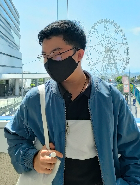The Power They Never Saw Poem by Richmon Rey Jundis
The Power They Never Saw
I heard it first in a movie,
From a man in a red suit,
Swinging between steel towers,
Shielding the weak from the weight of falling ruin:
'With great power comes great responsibility.'
But why?
Is it because the powerless can do less
Than those who wield strength?
Are they meant to be saved,
Forever waiting beneath crumbling skies,
While caped figures rise above them?
Is power a gift to the privileged,
Or is it already possessed by all?
I've seen almost every episode,
Marvels, the Avengers' war,
The endless clash of Justice and League,
Where power is a force that breaks or mends.
But what about the bystanders,
The nameless faces in the crowd,
The ones caught between battles,
Rescued from the dust of shattered streets?
Do they hold no power at all?
Fictional, yes, yet a reflection still,
A slice of truth hidden behind the films.
Power should not belong
Only to those who twist the world in their palms,
But to the ones whose voices rise
Like a tide against the shore.
For they hold the power
To summon heroes from the shadows,
To awaken fury in villains' eyes,
To shape the narrative,
To reclaim the name of the weak
And make it mighty once more.
Was it not Nietzsche who unearthed
The power of the oppressed?
Or Foucault, who shattered the illusion
That power belongs to the few?
Citizens, nameless yet many,
Have power woven into their very breath,
Power to unmask the hands
That twist justice into chains,
Power to shake the thrones
Of those who mistake dominion for right.
Yet they have been told they are nothing,
And so, they became what they were told.
But power is there, waiting,
Not in the strength to tear cities apart,
But in the fire that makes bones unbreakable,
In the will that bends to no master.
No one taught them to wield it.
No one reminded them it was theirs.
But now, they must remember.
But now, they will remember.
This poem has not been translated into any other language yet.
I would like to translate this poem